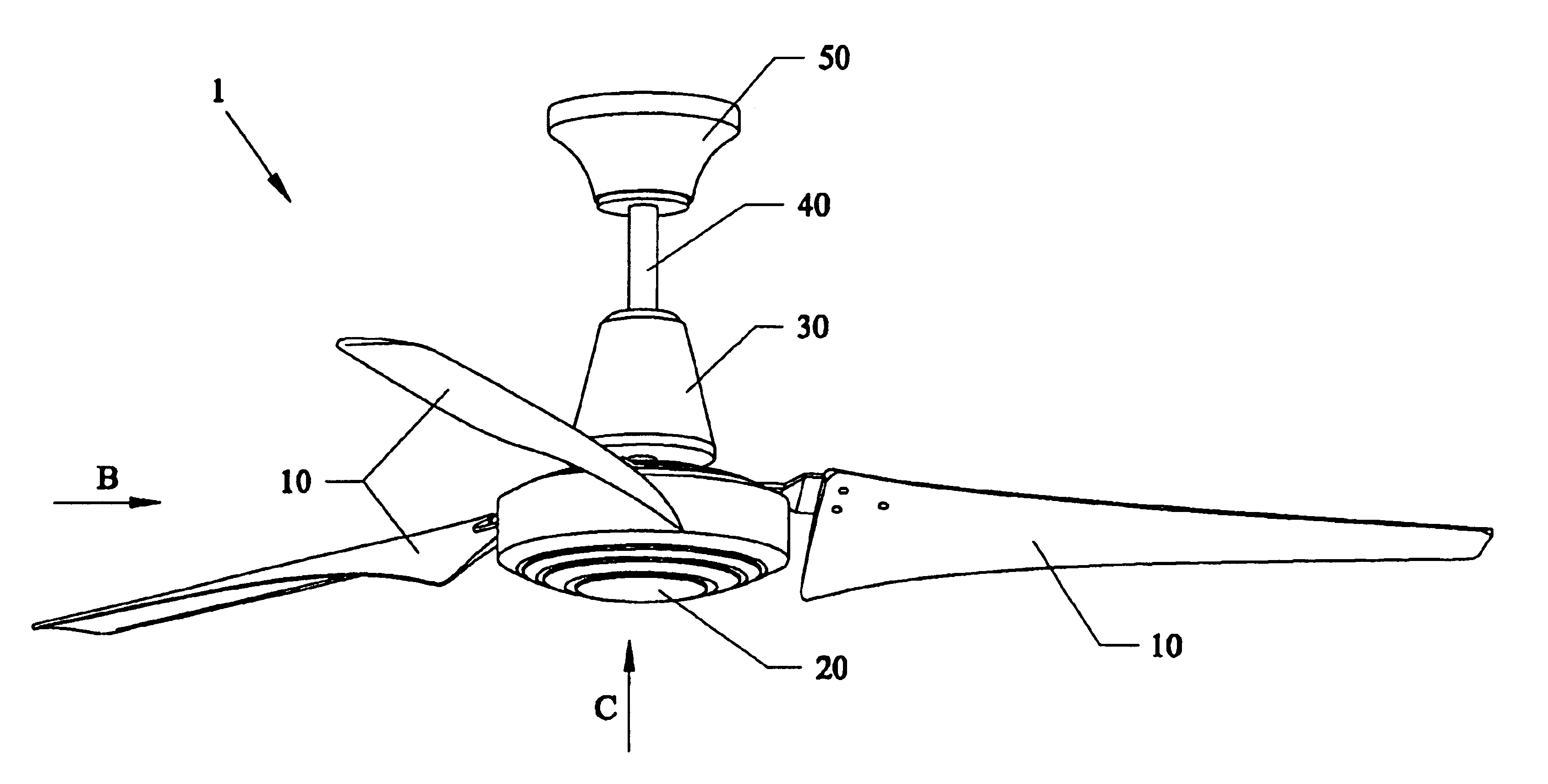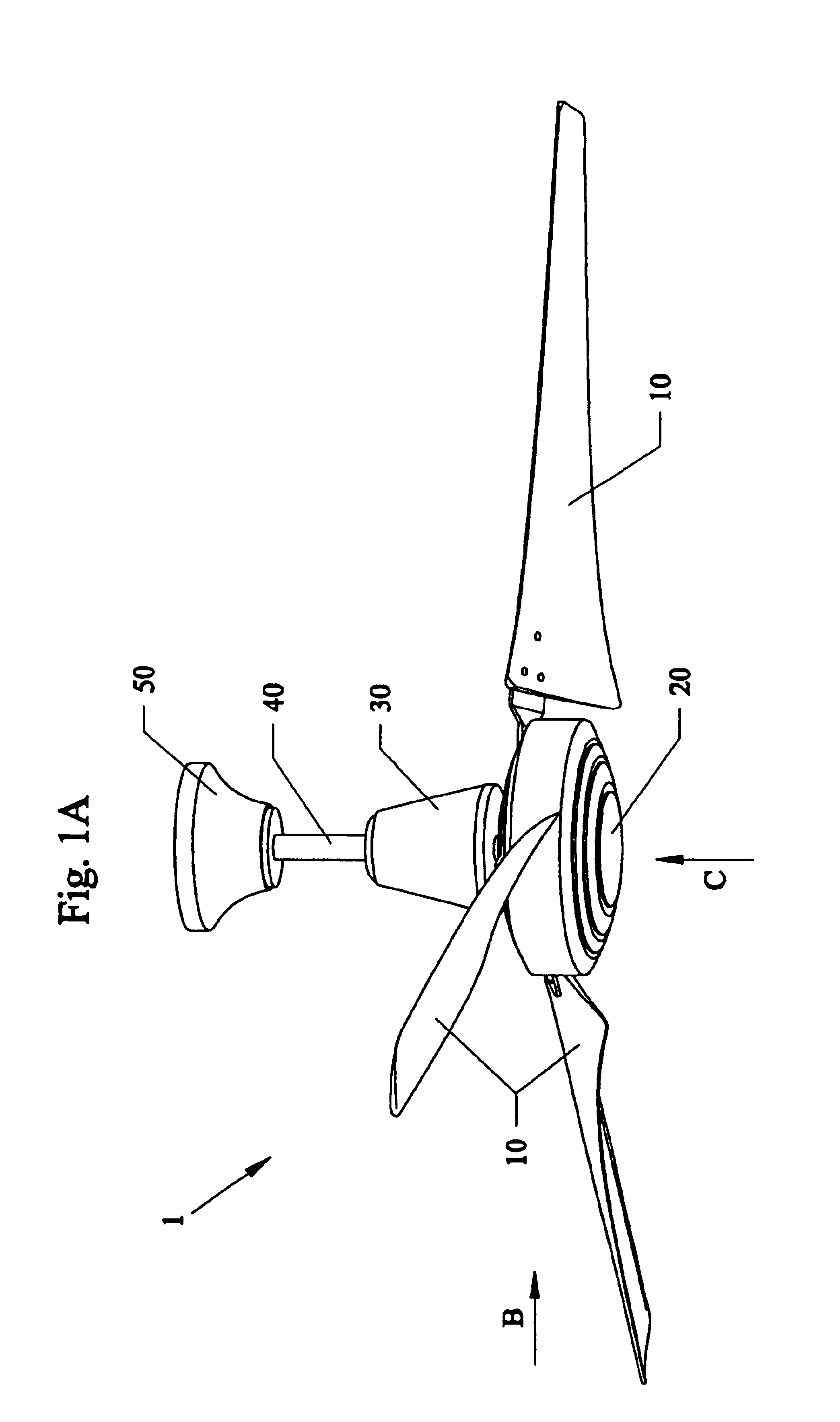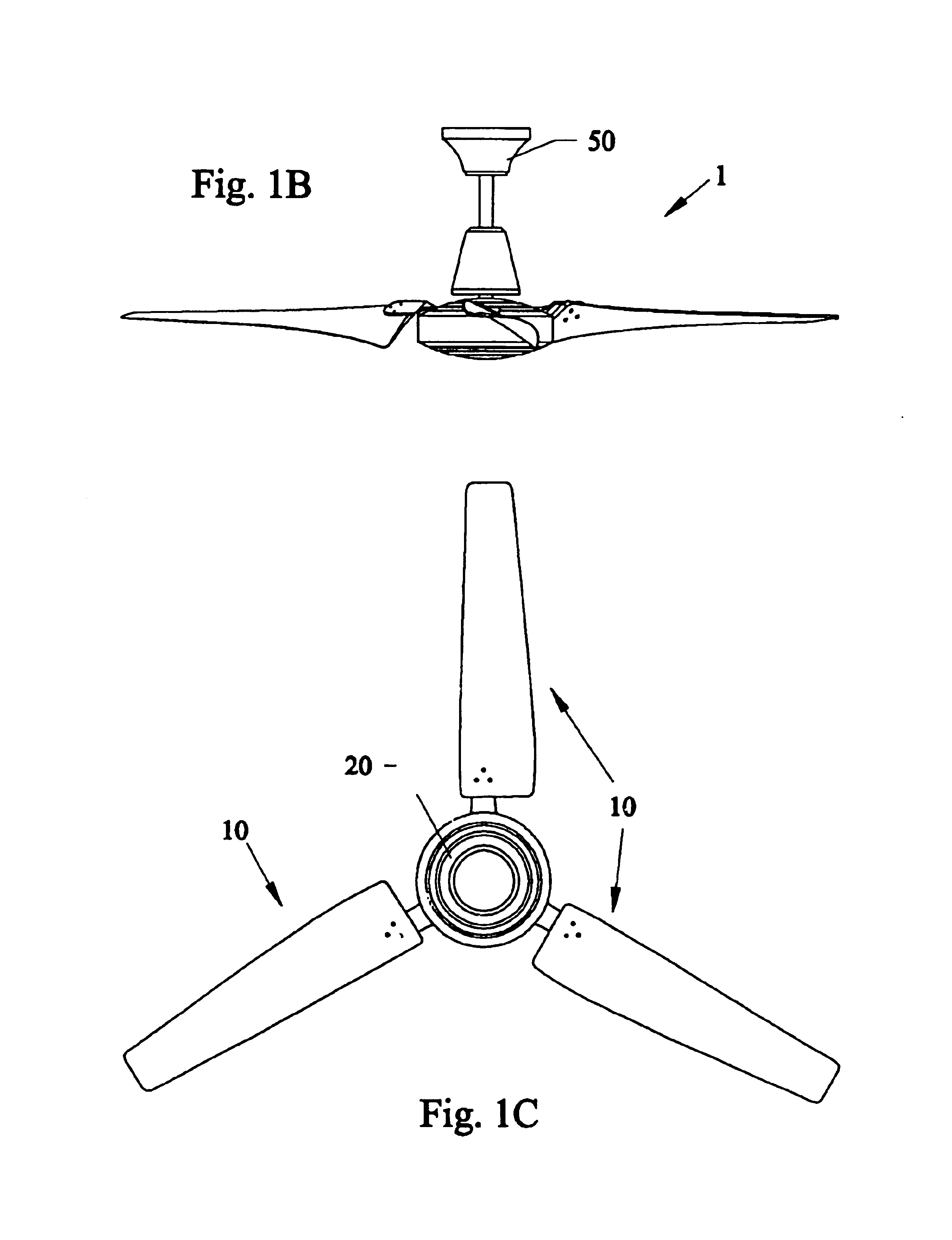Enhancements to high efficiency ceiling fan
a ceiling fan and high efficiency technology, applied in the direction of wind motor components, non-positive displacement fluid engines, liquid fuel engine components, etc., can solve the problems of excessive noise, flat ceiling fan blades, poor performance at high speeds, etc., and achieve the effect of reducing electrical power consumption and being more energy efficien
- Summary
- Abstract
- Description
- Claims
- Application Information
AI Technical Summary
Benefits of technology
Problems solved by technology
Method used
Image
Examples
Embodiment Construction
[0041]Before explaining the disclosed embodiments of the present invention in detail it is to be understood that the invention is not limited in its application to the details of the particular arrangement shown since the invention is capable of other embodiments. Also, the terminology used herein is for the purpose of description and not of limitation.
[0042]Testing of novel ceiling fan blades were first described in detail to parent patent application to the subject invention, namely U.S. patent Ser. No. 09 / 056,428 filed Apr. 7, 1998, now U.S. Pat. No. 6,039,541, and incorporated by reference. The initial novel blades were tested between May and June, 1997 at the Florida Solar Energy Center® in Cocoa, Fla., and included three parameters of measurement data: airflow(meters per second(m / s), power(in watts) and speed(revolutions per minute(rpm)). Those novel ceiling fan blades far surpassed the operating parameters of various ceiling fans in operation, as do the subject fan blades of ...
PUM
 Login to View More
Login to View More Abstract
Description
Claims
Application Information
 Login to View More
Login to View More - R&D
- Intellectual Property
- Life Sciences
- Materials
- Tech Scout
- Unparalleled Data Quality
- Higher Quality Content
- 60% Fewer Hallucinations
Browse by: Latest US Patents, China's latest patents, Technical Efficacy Thesaurus, Application Domain, Technology Topic, Popular Technical Reports.
© 2025 PatSnap. All rights reserved.Legal|Privacy policy|Modern Slavery Act Transparency Statement|Sitemap|About US| Contact US: help@patsnap.com



